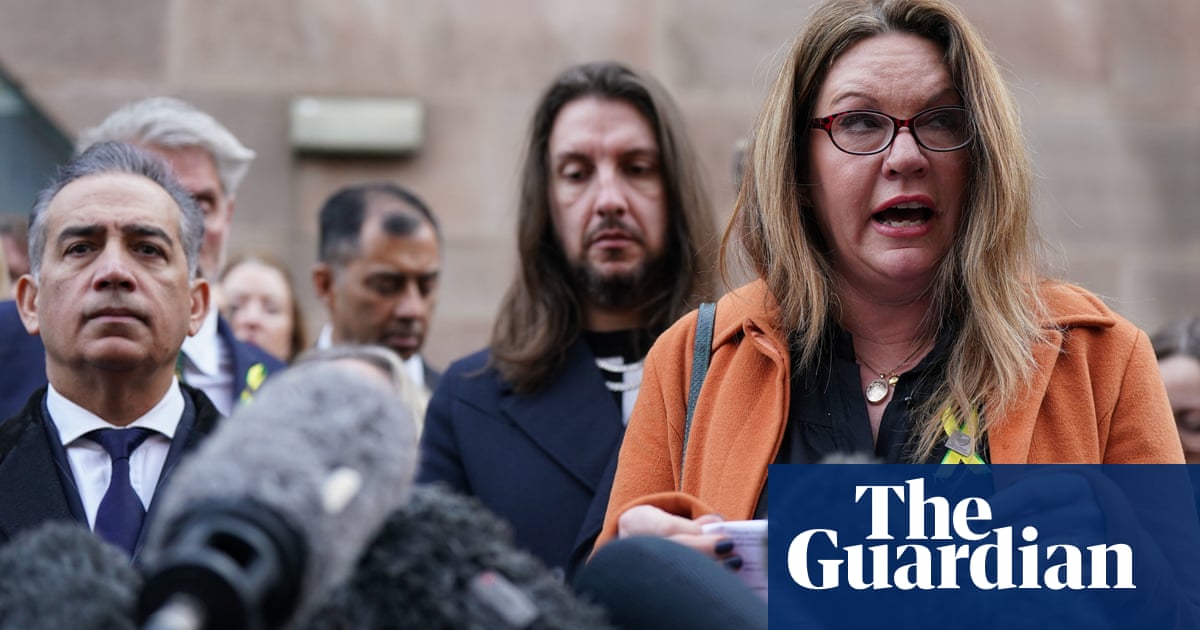
The mother of 19-year-old Richard Okorogheye has called for a public inquiry into how the police deal with reports of missing black people, after a damning report by the police watchdog.
The Metropolitan police failed the family of two black sisters who disappeared and were later found murdered, the Independent Office for Police Conduct (IOPC) concluded on Monday.
The Met said it would issue an apology to the family of Bibaa Henry and Nicole Smallman.
Evidence Joel, whose son Richard was found dead two weeks after he went missing, said an apology had to be the start and more needed to be done to tackle what she sees as a longstanding issue affecting the black community.
Joel, who criticised the watchdog’s decision that no officer should face a disciplinary hearing in the case of the two sisters, said there were “biases in the system when it comes to us”, adding: “If it was someone who was white, I think they would have been treated differently.”
Joel previously has criticised the Met’s handling of her son’s case, claiming her concerns were not “taken seriously” after his disappearance from his home in Ladbroke Grove, west London, in March. His body was later discovered in a lake in Epping Forest, Essex.
She said she was told by the force that Okorogheye, who suffered from sickle cell disease and had been shielding due to the pandemic, was not considered “high risk” until he had been missing for six days.
Two Met staff members have been given misconduct notices over potential failings in the disappearance of Okorogheye.
Mina Smallman, the mother of the murdered sisters, made similar criticisms and said she believed race was a factor as the family’s pleas for help over the weekend her children were missing went unheeded. Their friends found the bodies “after organising their own search party”.
The IOPC said it had looked exhaustively at whether bias was a factor in the case of the two sisters and found it was not.
“The parents had to actually go out and look for their own children. So the question is what’s going on? Why is it not taken seriously when we are reporting our children? Yes, of course they are adults, but it doesn’t matter. They’re missing, they’re missing. They should have taken it very seriously … But at the end of the day, as usual, they’re not very proactive,” Joel said.
She added: “I think more should have been done, not just an apology. Lessons need to be learned so that this sort of thing cannot carry on. It has happened to me, I’m sure it has happened to other parents as well. It needs to stop.”
She called for a public inquiry into the issue of missing black people and believes it should look “into the police”.
A report by the UK Missing Persons Unit published in March found black people were overrepresented in regards to being reported missing.
In England and Wales for the year 2019-20, black people made up 14% of reported missing incidents recorded by police forces, despite making up just 3% of the population. White people accounted for 76%, despite making up 86% of the population.
This disproportionality may be due to London having in general a higher number of missing person reports.
Overall, research by the charity Missing People shows 170,000 people are reported missing to the police every year in the UK. Many will go missing more than once. The vast majority of missing people are found or return within 24 hours. About 2% of children and 5% of adults that go missing are gone for longer than a week.
Families do not have to wait 24 hours before reporting someone missing. Forces such as the Met tell people to call 999 if the missing person is in immediate danger, is a young child or is at risk of harm. But there are frustrations at what some argue is a racial disparity in how different cases are treated.
Missing People launched a study this year on the discrimination faced by black families whose loved ones go missing. Josie Allan, its policy and campaigns manager, said: “Some talk to us about feeling like they weren’t listened to when they first tried to report their loved ones missing and that their concerns were not taken seriously. In some cases, they spoke about assumptions being more likely to be made about their missing person; that the risk wasn’t as high as it was, or in some cases that that person was assumed to be taking part in criminal activity rather than being vulnerable.”
Dominic Norton, who set up the website missingblackpeople.com, said the police were just one part of the problem. He believes support services for mental health and youth centres, which have been drastically cut in the past decade, are better equipped to intervene.
He points to research from Missing People that showed mental health was the No 1 reason why adults went missing. For children, risks around exploitation, including sexual and criminal exploitation, were also a significant concern.
Over 20,000 people signed his petition calling for a public inquiry into the causes surrounding missing black people, but the government rejected it.
“But all these other support services have also been underfunded, which has led to an overreliance on the police,” Norton said. “What I’ve been finding in my conversation with police is when a missing person goes missing, because there’s a sheer caseload, they’re doing more administrative work than investigative work.”












